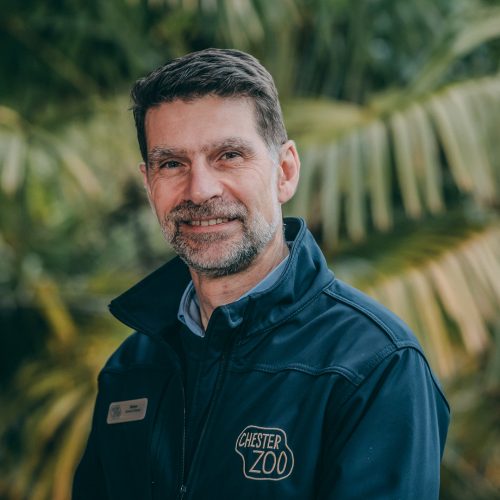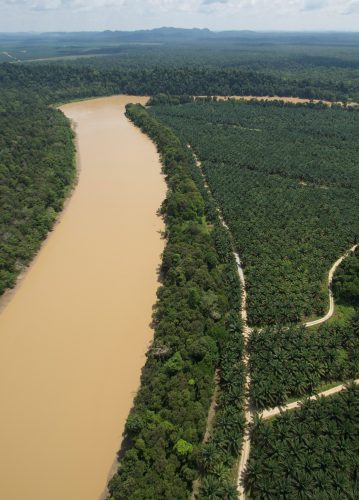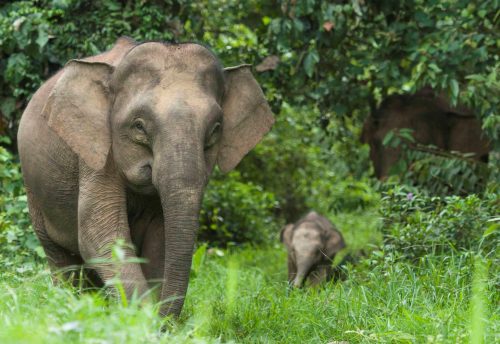As the World Biodiversity Summit sparks discussion on the latest ideas and plans to tackle biodiversity loss, Chester Zoo Science Director, Simon Dowell, writes about the path forward for us in tackling one particular area of biodiversity decline…
Simon Dowell, Science Director at Chester Zoo
The Natural History Museum has this week revealed its ‘Biodiversity Trends Explorer’ to help negotiations at CoP15 – the global convention that will set the agenda for tackling the nature crisis for the next decade. And, like the other assessments of global biodiversity loss before it, it makes grim reading. Their Biodiversity Intactness Index (BII) is a measure of how biodiversity has been depleted compared to the levels in pristine ecosystems. This research reveals a downward trend globally, with the UK in the bottom 10% of countries, partly as a result of the industrial revolution having destroyed much of our native wildlife over the last 250 years.
We are now realising the major economic, social and climatic impacts of this damage and the huge investment that will be required to restore and recover nature in our own country. But to prevent the same thing happening in other countries across the globe, we have an even more important part to play.
As a net importer of most things, what we as consumers buy in the UK has a significant impact on biodiversity loss elsewhere. Agricultural commodities, such as palm oil, soya, coffee and sugar find their way into our shopping baskets via complex supply chains, which often originate in deforestation and other forms of habitat destruction to make way for ever increasing demands. By continuing to consume these products we are, perhaps unwittingly, contributing to the continued destruction of nature on our planet, in the same way as our consumption of fossil fuels contributes to the carbon emissions that cause climate change.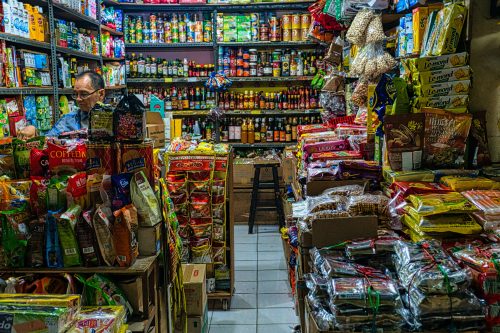
So, how do we stop this accelerating catastrophe?
Banning all these commodities, or procuring them from home-grown sources to prevent this destruction, just isn’t an option. They require warmer climates to grow in (where they actually take up less land than they would any alternatives that might be grown here) and they are simply too prolific and universal in our diets and lifestyles to cut out entirely. Just as we need to develop more sustainable land management at home to reverse our own trend in biodiversity loss, we also need to support more responsible methods worldwide through our consumer choices and procurement decisions.
Palm oil plantations along the Kinabatangan River
Seek out sustainable
At Chester Zoo, our sustainable palm oil movement highlights one of the most prolific of these commodities – vegetable oil from oil palm, which is grown in the tropics, especially Indonesia and Malaysia. Oil palm plantations have replaced biodiversity-rich rainforests, putting species like the Bornean orangutan at risk.
However, we know from working closely with environmental NGO Hutan and their network of responsible producers on the ground in Malaysian Borneo, that palm oil can be produced in more socially responsible ways that are kinder to wildlife and people. This is why we support measures that increase the demand for sustainable palm oil, certified by the Round Table on Sustainable Palm Oil (RSPO), a global initiative that now requires producers to commit to growing palm oil on land that has not been deforested for a number of years. Furthermore, the RSPO sets and monitors high standards for tackling social and economic challenges, as well as reduced and responsible use of agrochemicals to minimise the environmental impact of their operations.
While certification isn’t a silver bullet to get to fully deforestation-free, it is one of the tools we need to use to solve this challenge. 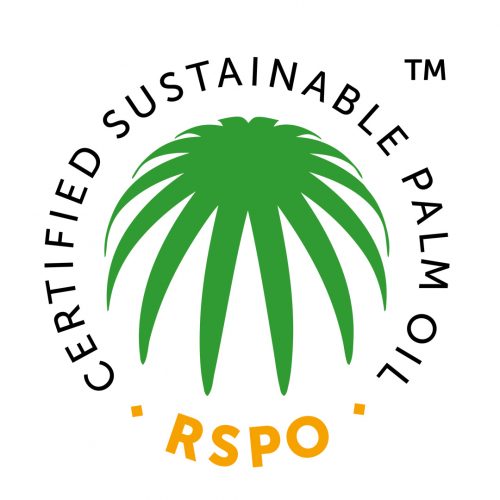
“If we can get this right and break the link between deforestation/habitat conversion and production, then we actually have a vital opportunity to act at the scale needed to reverse the destruction of biodiversity on the planet.”
Simon Dowell, Science Director at Chester Zoo
The palm oil industry is on a journey and currently 19% of palm oil produced is certified sustainable by the RSPO. A recent investigation by Global Witness, featured on Channel 4 News in the UK, has highlighted some of the bad practices still operated by a portion of the industry that has not embraced the sustainable standards. We welcome the outing of such appalling malpractice, which serves to highlight just how urgent it is that we bring more of the industry onto the sustainability journey.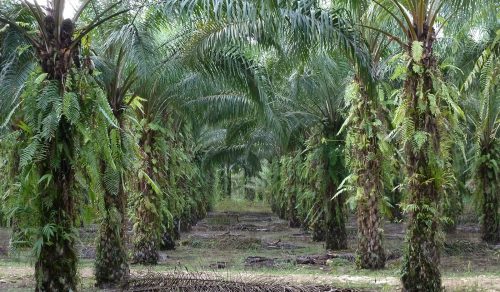 Ultimately, though, the solutions to these problems lie with governments setting stronger standards, coupled with increasing demand for responsible production from consumers, retailers and suppliers. It is vitally important that exposés of bad practice are balanced with examples from responsible producers who demonstrate the value of certification in driving sustainability.
Ultimately, though, the solutions to these problems lie with governments setting stronger standards, coupled with increasing demand for responsible production from consumers, retailers and suppliers. It is vitally important that exposés of bad practice are balanced with examples from responsible producers who demonstrate the value of certification in driving sustainability.
One such example was highlighted on the BBC’s recent Earthshot Prize documentary series, presented by Prince William and Sir David Attenborough. This featured Hutan conservationist Mislin Elahan, from the Kinabatangan river basin in Sabah, who, for the last 20 years has carried out research on orangutans in and around her smallholding where she grows oil palm sustainably, right next to surviving patches of wildlife-rich rainforest.
Taken together, these two reports, although from different programmes, exemplify the severity of the problem but also present a credible solution to tackling the environmental problems caused by palm oil. Presenting the problem without the solution is both depressing and misleading, so we urge the media to provide the balance to help us build a better world. Much of the industry is on a journey, navigating through complicated supply chains, challenges with traceability and differing national standards. It is important that we encourage responsible producers, as well as calling out the unscrupulous ones. It is also important that we strongly support the further strengthening of standards and the call for third party auditing of the palm oil industry as a whole to expose bad practice and continue to improve transparency.
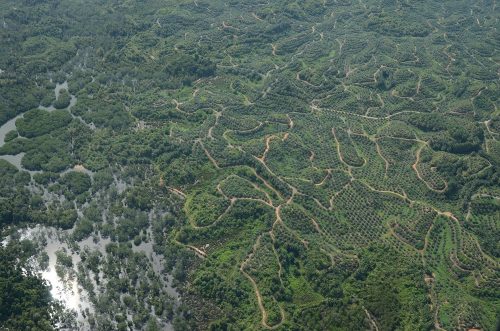
Despite the challenges of palm oil, it is ahead of the game when it comes to developing deforestation-free supply chains. For many other agricultural commodities, we are only just starting to consider how our actions as consumers could reduce and ultimately eliminate their impact on some of the world’s most biodiverse ecosystems. If we can get this right and break the link between deforestation/habitat conversion and production, then we actually have a vital opportunity to act at the scale needed to reverse the destruction of biodiversity on the planet.
For this reason we welcome the inclusion of a commitment to secondary legislation on deforestation risk supply chains in the Government’s Environment Bill, currently completing its passage through parliament. Current proposals focus on requiring large companies to undertake due diligence designed to ensure that their supply chains for deforestation risk commodities do not support illegal deforestation and land conversion. Together with other conservation NGOs, we are calling for more robust measures than relying on local legislation, as not all deforestation is illegal. We would also like to see a statutory deforestation target to move us towards a measurable reduction in the UK’s global land conversion footprint.
Discussion of this issue comes at a critical time as talks start this week during CoP15 to develop a new Global Biodiversity Framework, and world leaders gather in Glasgow for CoP26 in November to decide how to confront climate change. Reversing the loss of forests and other natural habitats through breaking the link with agricultural supply chains must be an absolutely central part of the solution to both challenges.
Dr Simon Dowell, Science Director
